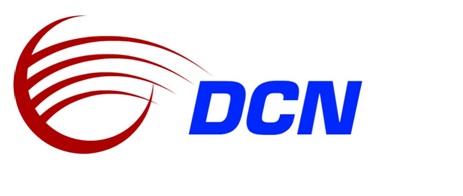Balancing Federal, state, and local regulations, with the layers of Federal Motor Carrier Safety Administration requirements is just another day at the office for DCN’s members in the transportation industry.
At DCN our transportation specialists understand that maintaining regulatory compliance and running a business can be a challenge for independent transportation professionals. Here are some of the key compliance areas that owner-operators need to monitor and manage.
Hours of Service Requirements
The FMCSA’s hours of service regulations for commercial motor vehicles are far-reaching. In fact, mechanics and other occasional drivers are subject to HOS rules even if they don’t complete a Record of Duty Status log.
In general, HOS regulations state that property-carrying drivers can drive a maximum of 11 hours after 10 consecutive hours off duty. But there are numerous limitations and work-break balances for commercial vehicle drivers. Keep in mind that each state sets its own regulations that can be different than federal ones.
Know your BASIC Status
The FMCSA’s Safety Measurement System is based on what’s called BASIC status. Behavior Analysis and Safety Improvement Categories are used to monitor carriers’ safety measures and provide an overview of a company’s safety compliance and performance. BASIC status is impacted by truck inspections, violations, crashes, HOS compliance, unsafe driving, vehicle maintenance, hazardous materials compliance, driver fitness, and possession or use of a controlled substance or alcohol.
What’s Your CSA Score?
The FMCSA’s Compliance, Safety, and Accountability Score uses a Safety Measurement System that compares BASIC status of carriers that have a similar number of safety events (e.g., crashes, inspections, or violations). The SMS has two components. One component measures the safety of individual motor carriers and the other is the Driver Safety Measurement System, which measures the safety of commercial motor vehicle drivers. Carriers are ranked and assigned a percentile from 0 to 100 – a higher ranking means poorer performance. Rankings are then used to prioritize carriers for federal interventions.
Compliance with HOS requirements, tracking BASIC status, and working to improve CSA scores are critical to avoid a poor carrier safety rating or even being put out of service for a certain period of time.
What’s the Difference Between MC, DOT numbers?
Under the FMCSA, independent trucking companies may need a Department of Transportation number, an MC Number, or both. What’s the difference? A DOT Number verifies a company’s operating status with the FMCSA. It shows that you’re using a vehicle commercially.
An MC Number is also known as an operating authority or trucking authority. Operating Authority dictates the type of operation a company may run and the cargo it can carry. FMCSA operating authority is also referred to as an “MC,” “FF,” or “MX” number, depending on the type of authority that is granted. A company may need to obtain multiple operating authorities to support its business operations.
Keep CDLs Updated
Depending on a driver’s state of residence, CDLs are generally valid for between five and eight years. Renewal processes and requirements also differ between states. The DOT will revoke CDLs for drivers operating without a current license and enforce heavy penalties and fines.
Maintain clear, current DVIRS
FMCSA requires commercial vehicle drivers to complete Driver Vehicle Inspection Reports that document any missing or unsafe equipment on the vehicle. Many trucking companies use labels to mark inspection points on vehicles. But harsh driving conditions can make traditional stickers virtually unreadable. Avoid losing points on truck inspections by using data plates and durable equipment tags that won’t fade or break down.
Get Solid Insurance Coverage
Commercial trucking insurance protects independent truckers from liability related to accidents and other incidents that can impact their business.
The first type of insurance is referred to as primary liability and is generally obtained when someone gets a CDL. It ensures people and property accidentally damaged by your truck.
As an owner-operator, you also need to obtain general liability truck insurance to protect your business. It covers accidents at delivery locations, false claims, damaged property and cargo, bodily injury, personal truck damage, and lost income resulting from accidents. FMCSA also requires businesses to have proof of general liability coverage.
DCN Helps Members Navigate Every Area of Trucking Compliance
DCN members have access to several programs that help them run their businesses efficiently and maintain operating compliance with Federal, State, and local laws and regulations. Access to legal services, liability insurance, discount programs and tools for business growth put our members on the fast track to running a successful independent trucking company.
DCN is a corporation owned and controlled by its members. Rather than being a single-person company or independent contractor you join hundreds of other members who all add value to the organization. To find out more about how your transportation business can thrive by joining DCN, call 1-855-277-1099 or contact us.
